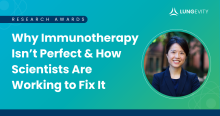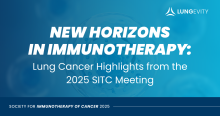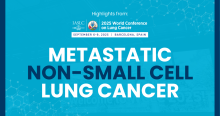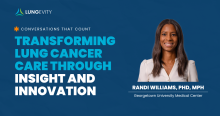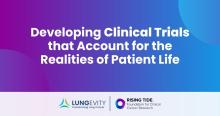Why Immunotherapy Isn’t Perfect & How Scientists Are Working to Fix It
The human immune system is an intricate web of checks and balances that usually excels at detecting and destroying foreign invaders, such as bacteria and viruses, while protecting healthy tissue. But sometimes, the checks and balances get confused and stop the immune system from doing what’s right—such as killing tumor cells. Tumor cells are good at confusing the immune system because they originate from our healthy cells. They can often avoid detection by immune cells. Through several decades of research, we have identified two key protein pathways, PD-L1 and CTLA-4, that lung cancer cells

